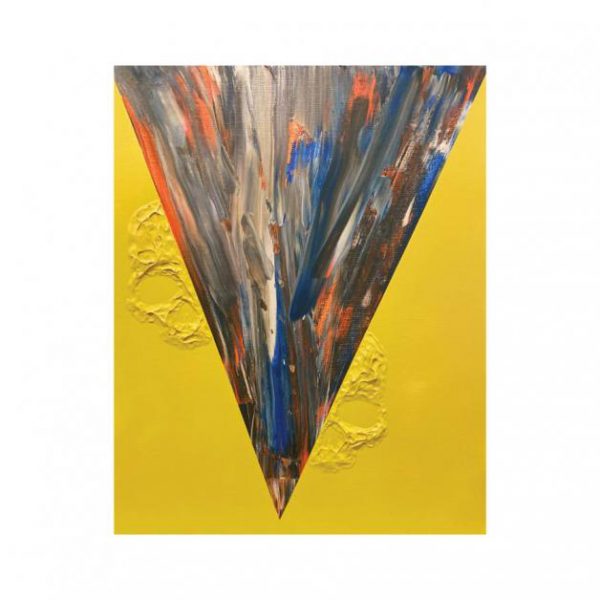ALBUM REVIEW: Lupe Fiasco makes a salient statement with ‘Drill Music In Zion’
There’s a story that Picasso once drew a picture on a napkin for one of his aficionados, and then asked for an absurd amount of money. When confronted that it took him merely five minutes to make, Picasso retorted that it took him decades to be able to complete such a work in five minutes. I thought of this story when listening to Drill Music In Zion, the eighth album by Lupe Fiasco.
Drill Music In Zion
Lupe Fiasco
1st & 15th, June 24
10/10
Lupe has been rapping since 2000, having made an undeniable impact on hip-hop as one of its most sophisticated lyricists. Crafted over the course of three days, and produced solely by longtime collaborator Soundtrakk, this fantastic album examines the duality of innocence and corruption—ancient and modern—and the subjectivity of perspective.
Fans will find a familiar voice in opening track “THE LION’S DEEN.” Ayesha Jaco delivers a powerful spoken-word piece in a manner similar to her appearances on several previous Lupe Fiasco albums, setting the tone for the rest of this one. Vinyl crackles across each track.
“GHOTI” (pronounced “fish”) begins with a heavily washed-out brass instrumental that comes into focus on the beat drop as snares pick up into a nice and smooth boom bap groove. This song highlights the themes of old and new, and perspective, as Lupe delivers his avant-garde bars.
On “AUTOBOTO,” washed-out guitar is contrasted with shimmering tones. A plucky mandolin takes over alongside an energetic trap beat. Lupe takes on his alter ego, Carrerra Lu, rapping about the increasing tensions of gang life through ever-relevant climate change metaphors. He also addresses his artistic evolution over the years and how he feels completely different from the person he once was many years ago, rapping about robots and skateboards.
RELATED:
* Lupe Fiasco celebrates ‘Food & Liquor’ in return to the stage at The Warfield
* Lupe Fiasco and Kaelin Ellis dig existentialism and the pandemic on ‘HOUSE’
Nayirah makes an appearance on the here as well as on “SEATTLE,” but her presence is most strongly felt on the choruses of “PRECIOUS THINGS.” A slow, skipping snare taps alongside hollow and somber synth tones as a deep bass and echoing grand piano pick up. Lupe airs his grievances over feelings of betrayal by some of his peers. Though heavily veiled, it seems like the song is directed to Royce da 5’9.” The two had had a falling out last year.
“KIOSK” is probably the most sonically unique song on the album. Lupe tells the story of a sinister kiosk worker at a mall trying to hock flashy jewelry. He raps over a piano part with scratchy, distorted vocals, recalling his character “The Game” from his album The Cool. The song deals with the ethics of the jewelry trade and the violence that permeates it, from mining to selling. The song picks up with a snare and cleans up the vocals as Lupe responds to the salesman with conviction, rejecting the offer.
“MS. MURAL” is the third song in the “Mural” trilogy; among Fiasco’s best-regarded songs. A music-box-like keyboard melody plays with snares rattling along while Lupe describes the interaction between an artist and an observing patron. The song is complex and layered, earning its namesake. Lupe delivers a number of visually popping and profound lyrics that will have you pouring over every word. Breaks in the verses are elevated with some gorgeous saxophone riffs.
We get another boom-bap cut on “NAOMI,” where trumpets blare alongside piano keys. Lupe Fiasco raps about learning to let go of pain and anger from the past. He later goes on to deliver a shorter, but just as thoughtful verse touching on Malcom X. He builds into some of his most abstract and lyrically dense writing on the title track, examining the duality of corruption and innocence. Horns play over a muffled snare as he explores how innocence is often corrupted and how that which appears innocent on the surface may ultimately hold sinister intentions.
Fiasco concludes with “ON FAUX NEM,” which offers a warping synth and boom-bap snares. He kicks off the first verse effectively with a “moment of silence” as he laments the deaths of rappers. He goes on to criticize how hip-hop has enabled violence through glamorization—not a new sentiment–as he closes out the song examining his own anxieties around mortality.
To say that Drill Music In Zion is lightning in a bottle is a disservice to the quality Lupe Fiasco brings to this record. If anything, his dedication to his writing has served him to be able to create such a well conceived concept and to execute it so flawlessly in a short time.
Follow hip-hop critic Tim Hoffman at Twitter.com/hipsterp0tamus.

